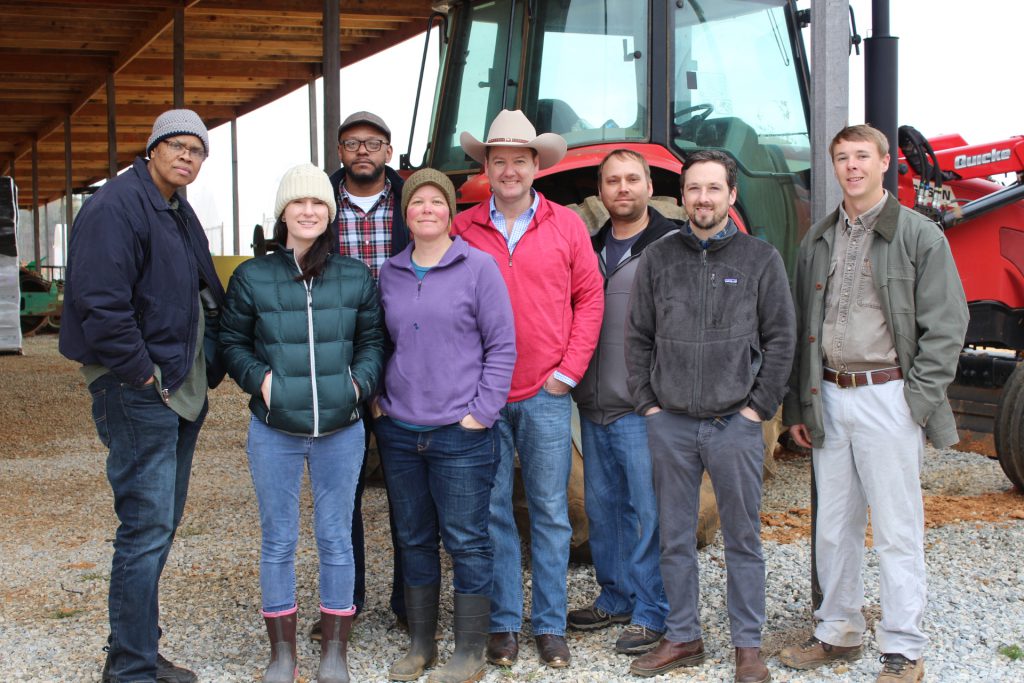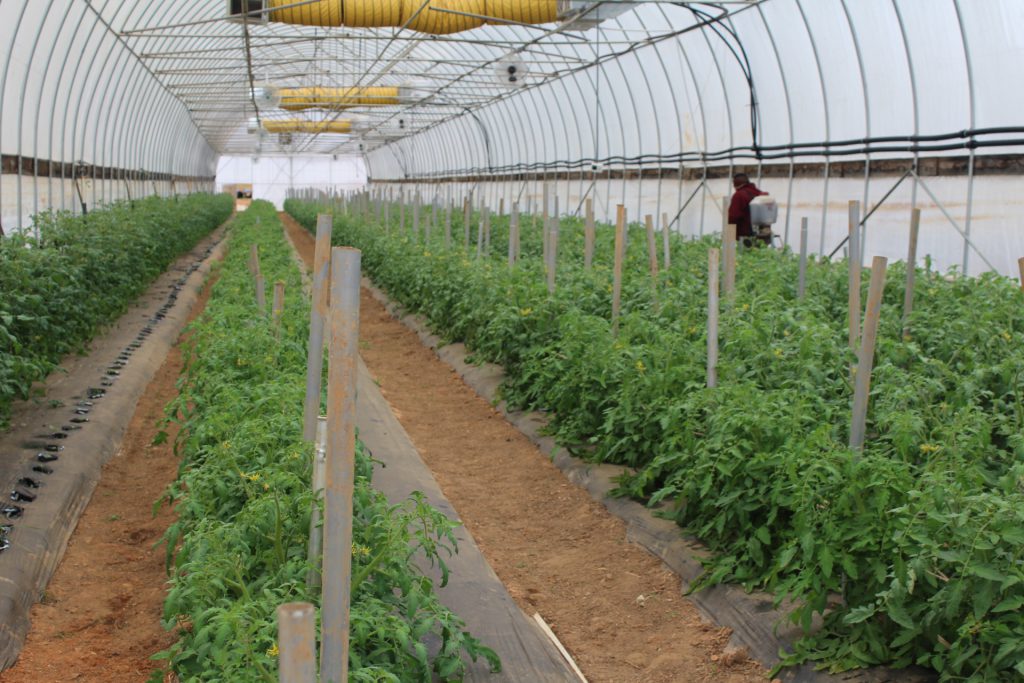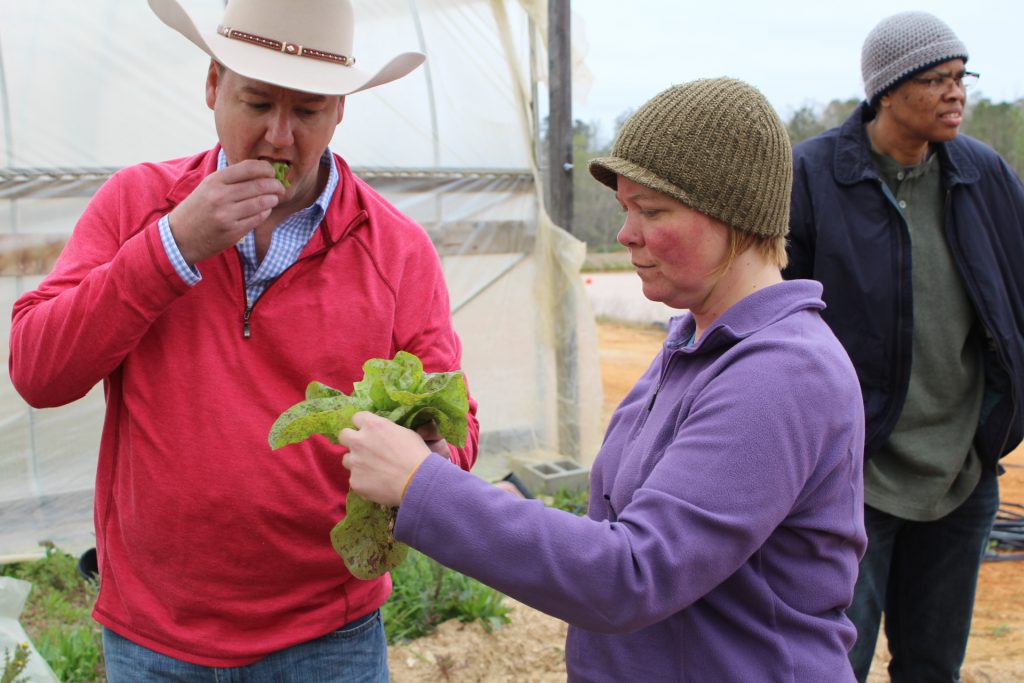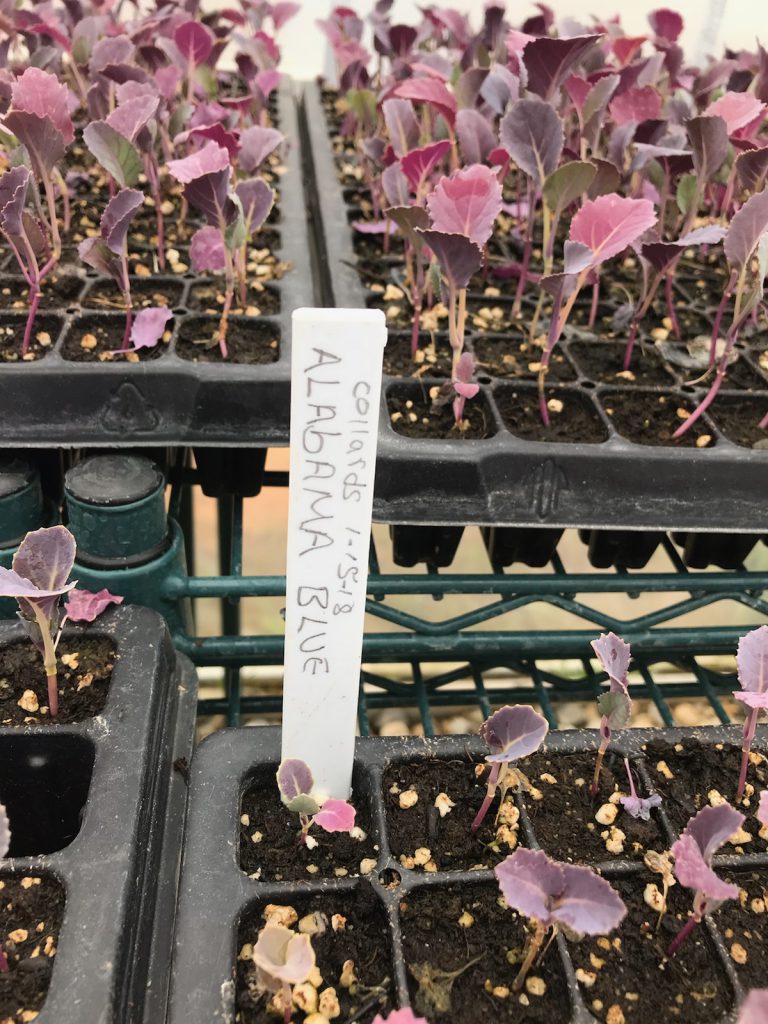by Robert Lynn | originally published by Bravo Magazine | republished here with permission
 On a crisp spring morning in March, the Bon Appetit chefs from Birmingham-Southern College, along with Taylor Clark and Leigh Hooten of REV Urban Food Project, took a trip to Neal Pope’s Farm in Salem, AL. This trip was designed to meet one of our enrolled Farm to Fork vendors and learn about sustainable farming, but transcended these expectations and became a conduit to reenergize us and remind us of why we do what we do.
On a crisp spring morning in March, the Bon Appetit chefs from Birmingham-Southern College, along with Taylor Clark and Leigh Hooten of REV Urban Food Project, took a trip to Neal Pope’s Farm in Salem, AL. This trip was designed to meet one of our enrolled Farm to Fork vendors and learn about sustainable farming, but transcended these expectations and became a conduit to reenergize us and remind us of why we do what we do.
Neal Pope’s Farm is one of 20 local producers delivered through REV, an area aggregator. The Director of the Urban Food Project, Taylor Clark, spoke about her initial meeting with Mr. Pope, saying:
“Off the jump, I was blown away by how much he understood about his business. He didn’t take a breath for 20 minutes telling us about the farm and you could just see how invested and passionate he was.” – Taylor Clark
The farm itself is a model for sustainability. The power and winter heat for the crops is supplied by a massive solar array that seems large enough to supply the needs of a small town. There is a spring fed water source that perpetually stays a cool 67 degrees and is able to cool the hoop houses in the scorching Alabama summers, for geothermal climate control year-round. They’ve gone through the lengthy process to become certified organic and they are even making their own topsoil in an area dominated by bright orange clay hills. As Mr. Pope says,
“You can tell by the color of this soil, you don’t just stick a seed in the ground. We manufacture our own soil. We add a 12 inch layer of soil above the subsoil. There is 330 cubic yards of top soil, 66 cubic yards of sand and 66 cubic yards of fine, fine organic matter in each 9000 square foot hoop house.” – Neal Pope
Neal Pope isn’t conjured from a Norman Rockwellian idea of what a farmer should be, with overalls and a straw hat. He is a practicing attorney in a suit, whose field of specialty has carried him all over the world, but hearing him tell his story felt like it must have felt to listen to Mark Twain read Tom Sawyer; refined while remaining colloquial.
When asked what made him want to embark on the tremendous task of creating a fully sustainable, organic farm, he said:
“25 years ago I had a heart attack and I had six weeks to live until I got a new heart. I decided then that maybe you should take a second look at the way you’ve been livin’.
Travelin’ all over the world, people in various places care about what they’re eating and people here don’t give a fig about it. If they can open a can of soup with four times the salt in it or a TV dinner to give the kids…If they ever really tasted real food prepared by people who know what they’re doin’ or could teach them how to do it themselves, that would be a great thing. Bite into that Speckled Bibb in the spring when nobody else has got it, and it just explodes. The challenge is growing what the market wants as opposed to what they ought to want. [The latter] is a very expensive endeavor, but the pigs like it. If I got to thinkin’ about it, I guess that one head of lettuce cost me about $5000.”

Bon Appetit’s partnership with local farmers ensures that Neal Popes Speckled Bibb lettuce, Alabama Blue collards and the rest of his crops that are exploding with flavor feed appreciative students who, like us, absolutely do give a fig about what they eat.
Related News
-
Why we say yay to two-way streets
Filed Under: Developer, Downtown Birmingham, Filling Vacant Spaces, Front Page, Transportation, Yaysayers
REV Birmingham is a long-time advocate for making the switch to two-way streets downtown, and this is something recommended by planners studying our downtown for years. In fact, the team that developed the 2004 City Center Master Plan recommended many street changes but noted 4th Avenue North conversion should take place “immediately.” We believe this project is a catalytic moment for Birmingham – but you may find yourself wondering why that is.
-
The Key Tool for Urban Revitalization: Downtown BHM's Business Improvement District
Filed Under: Business-Proving, Developer, Downtown Birmingham, Front Page, Get Involved, Potential-Proving, Why BHM
By the time REV took on BID management in 2018, downtown had a new set of needs from its BID. Downtown Birmingham in the ‘90s had a population mainly of 9 to 5 employees. But the downtown of 2018 had a whole new population of residents and visitors throughout the day and night. We had new opportunities to create positive experiences, inviting them into more downtown businesses and public spaces, and to keep them coming back for more.
-
Introducing the six businesses that call Nextec home
Filed Under: Business-Proving, Developer, Downtown Birmingham, Filling Vacant Spaces, Front Page, Historic Preservation, Potential-Proving, Why BHM
On the corner of 3rd Avenue and 16th Street North, you’ll find Nextec, a redevelopment of the 90-year-old, 65,000-square-foot Edwards Motor Company building (also formerly known as the Sticks ‘N’ Stuff building). With experience in historic renovation, developer Michael Mouron, chairman of Capstone Real Estate Investments, began this civic project in 2021 as a space for business startups to continue their work in the Magic City – a function encouraged by REV Birmingham.